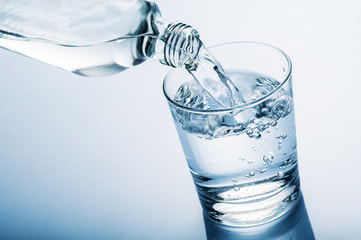|
Guest Post By: Sergio Valdes, CPT, CES, USAW L1 Coach  When do most heart attacks occur? You probably wouldn’t be surprised to hear that most heart attacks, according to the Australian Heart Foundation, occur on Mondays. If you’d like to be a lot more specific, heart attacks occur on Monday morning... Why? Most of it has to do with stress and anxiety. Those “Sunday scary” feelings hold a lot of truth to their name. They contribute to increased stress, which is both mental and physiological. Mondays are the first day of the week, which means it is also the first day of the work week. A lot of people (I’d say most) dread the idea of all the stress and fatigue they’re going to have to endure for five long weekdays until they can finally relax and unwind on the weekend. Even if the idea of going to work on a Monday can lead to the morning heart attack, there’s much more to it than just that feeling. There are several physiological factors at play, some of which we know and others we don’t. Among the many things we DO know, probably the most important, is the role dehydration plays in blood clots, stroke, and heart attacks. Most of us don't drink water during the night because, well, we're sleeping. The other is we avoid drinking water because we don’t want to be in the bathroom all night and prevent ourselves from getting our precious beauty rest. Being dehydrated affects our blood, lack of water turns our blood viscous (thick) and difficult to circulate, and the heart has to work extra hard to pump that blood through our veins. To add to that, the first thing most people reach for is a cup of coffee or orange juice, which only increases the effect of dehydration. Many people don’t know that caffeine is a mild diuretic, which makes you go to the bathroom more often. Juices and sodas are different, they are osmotic and cause fluid to move from the vascular system into the intestines. All this means is you’re even more dehydrated afterward. So what can we do about it? To help protect yourself against the dreadful "morning heart attack," keeping a glass of water at your bedside and drinking it before you get out of bed, along with a few more glasses, will help your body function and feel a lot better (Chan et al, 2002). How much water should we drink a day? According to the National Institute of Health (NIH), the recommended total daily fluid intake for men is about 12.5 cups of water (100 oz or 3,000 mL) and about 9.5 cups of water (75 oz or 2,200 mL) for women is considered more than adequate for healthy bodily functions. The water you drink increases the liquid volume of the blood, which does a really good job of reducing the risk of blood clots and heart attack. At the very least, drink a cup of water with your morning coffee, and another after. Resources:
1. Heart Foundation. Heart attacks more likely on mondays. Heart Foundation website. https://www.heartfoundation.org.au/news/heart-attacks-more-likely-on-mondays. April 4, 2014. Accessed Sept 18, 2018. 2. Jacqueline Chan, Synnove F. Knutsen, Glen G. Blix, Jerry W. Lee, Gary E. Fraser; Water, Other Fluids, and Fatal Coronary Heart Disease: The Adventist Health Study. American Journal of Epidemiology. 2002; 155(9):827-833. https://doi.org/10.1093/aje/155.9.827. 3. Meinders AJ, Meinders AE. How much water do we really need to drink? Ned Tijdschr Geneesk. 2010;15:A1757. https://www.ncbi.nlm.nih.gov/pubmed/20356431. Accessed Sept 18, 2018.
1 Comment
11/17/2018 06:33:58 pm
Water is an essential element for us and we should not let our body to be dehydrated for we only have one body. A body that we use and this is a gift that we should always cherish and give importance wherever we go. Soon there will be miracles if we continue to drink enough water for our body. Our body will be stronger and they can do more things if they are in good shape. We can now do different things easily and freely. Keep on doing our best to be healthy at all times.
Reply
Your comment will be posted after it is approved.
Leave a Reply. |
Meet Your TherapistJessica has been in Austin, TX for the past four years. She grew up in Idaho and attended PT school at Idaho State University. She completed an Orthopaedic Residency and became a Board Certified Orthopaedic Clinical Specialist in 2016. Archives
February 2022
Categories
All
|

 RSS Feed
RSS Feed